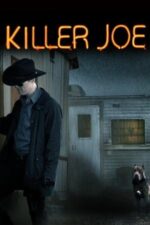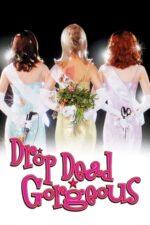Beyond the Asphalt: Exploring Cinema’s Trailer Park Universe
Okay, so we all have those places that just stick with you, right? Not necessarily bad places, but locations brimming with character – a visual shorthand for something bigger than themselves. For me, and increasingly in film, that place is the trailer park. It's become more than just a setting; it’s a cinematic landscape ripe with narrative potential, often carrying layers of social commentary and unexpected beauty.
Think about it: the image itself conjures up certain ideas – marginalization, resilience, community forged from circumstance. But filmmakers have taken that initial perception and run wild with it, creating some truly fascinating worlds. It's rarely just about dilapidated homes and gravel; it’s about the people who inhabit them, their stories, and how they navigate a world that often overlooks them.
Take "Western Trash," for example. The sheer absurdity of earnest Mormon missionaries stumbling upon a lesbian neo-Nazi biker gang in a trailer park is instantly captivating. It's not just quirky humor; it’s about challenging preconceived notions, forcing characters (and the audience) to confront their biases and find common ground in unexpected places. That clash of worlds – the pristine ideals of faith versus the raw reality of survival – is something you rarely see explored so effectively.
Then there's "Bogieville," which leans into a different kind of cinematic magic. The trailer park becomes a haven, a secret society hiding vampires in plain sight. It’s a brilliant twist on the vampire genre, using the setting to explore themes of acceptance and belonging – even for creatures deemed “monsters.” It's almost like John Waters meets Anne Rice!
What I find so compelling is how these films use the trailer park as a microcosm of society. "The Vagrant," with its unlikely friendship between a businessman and a homeless man, highlights loneliness and prejudice in a way that feels both poignant and darkly humorous. Even “Far From Home,” a tense thriller, uses the isolated setting to amplify the sense of vulnerability and distrust – the trailer park becomes a pressure cooker where secrets simmer just beneath the surface.
And let’s not forget "Dreamland," which really captures the quiet dignity and complex relationships that can thrive in these communities. It's a reminder that behind every weathered facade, there are lives being lived, loves being nurtured, and dreams being chased – even if those dreams seem small to the outside world.
The trailer park isn’t just a backdrop; it’s a character itself. And filmmakers are increasingly recognizing its power to tell stories that are both deeply personal and universally resonant. So next time you're looking for something a little different, something with grit and heart, I encourage you to explore the cinematic universe beyond the asphalt – you might be surprised by what you find.







































